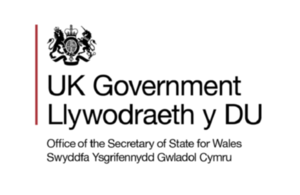Welsh Secretary will use Referendum Question as recommended by Electoral Commission
The forthcoming referendum on Assembly powers will use the amended question and preamble as recommended by the Electoral Commission, Secretary…

The forthcoming referendum on Assembly powers will use the amended question and preamble as recommended by the Electoral Commission, Secretary of State for Wales Cheryl Gillan has announced.
Welcoming the work undertaken by the Electoral Commission, Mrs Gillan said that - in addition - she had been supported by First Minister Carwyn Jones and Deputy First Minister Ieuan Wyn Jones in her decision to accept the Electoral Commission’s recommended version of the question and its preamble for use in the Assembly-requested referendum.
Mrs Gillan said: “I had a statutory duty to consult the Electoral Commission on the question that will be included in the draft referendum Order. I referred a question proposed by the Wales Office Referendum Project Board to the Electoral Commission on 23 June 2010.
“Over ten weeks the Commission conducted a thorough assessment of the preamble and question, including carrying out public opinion research, inviting and gathering views from interested parties and seeking advice on both English and Welsh versions.
“I welcome the objectivity and independence that the Electoral Commission has brought to the process. It has suggested changes that take into account the generally low level of public awareness of issues and terminology relating to devolution and the referendum encountered during the testing process. I have discussed the conclusions of the report with the First Minister and the Deputy First Minister and, with their agreement, have decided to accept the Commission’s recommended revision of the question and its preamble.
“The Presiding Officer has also indicated his agreement to the decision of the Secretary of State to adopt the Electoral Commission’s recommended question.
“I will lay the draft Order before Parliament shortly for consideration by both Houses, and my intention remains, subject to the remaining procedural steps, for the referendum in Wales to take place in the first quarter of next year.”
__
The agreed referendum preamble and question:
__
The National Assembly for Wales: what happens at the moment
The Assembly has powers to make laws on 20 subject areas, such as:
agriculture
the environment
housing
education
health
local government
In each subject area, the Assembly can make laws on some matters, but not others. To make laws on any of these other matters, the Assembly must ask the UK Parliament for its agreement. The UK Parliament then decides each time whether or not the Assembly can make these laws.
The Assembly cannot make laws on subject areas such as defence, tax or welfare benefits, whatever the result of this vote.
If most voters vote ‘yes’ The Assembly will be able to make laws on all matters in the 20 subject areas it has powers for, without needing the UK Parliament’s agreement.
If most voters vote ‘no’ what happens at the moment will continue.
Question
Do you want the Assembly now to be able to make laws on all matters in the 20 subject areas it has powers for?
Yes
No
Cynulliad Cenedlaethol Cymru: yr hyn sy’n digwydd ar hyn o bryd
Mae gan y Cynulliad y pwerau i lunio deddfau mewn 20 maes pwnc, megis:
amaethyddiaeth
yr amgylchedd
tai
addysg
iechyd
llywodraeth leol
Mae’r Cynulliad yn gallu llunio deddfau ar rai materion ym mhob maes pwnc ond nid ar faterion eraill. Er mwyn llunio deddfau ar unrhywun o’r materion eraill hyn, mae’n rhaid i’r Cynulliad ofyn am gytundeb Senedd y DU. Yna, mae Senedd y DU yn penderfynu bob tro a gaiff y Cynulliad lunio’r deddfau hyn neu beidio.
Ni all y Cynulliad lunio deddfau mewn meysydd pwnc fel amddiffyn, trethi neu fudd-daliadau lles, beth bynnag fo canlyniad y bleidlais hon.
Os bydd y rhan fwyaf o bleidleiswyr yn pleidleisio ‘ydw’
Bydd y Cynulliad yn gallu llunio deddfau ar bob mater yn yr 20 maes pwnc y mae ganddo bwerau ynddynt, heb orfod cael cytundeb Senedd y DU.
Os bydd y rhan fwyaf o bleidleiswyr yn pleidleisio ‘nac ydw’
Bydd yr hyn sy’n digwydd ar hyn o bryd yn parhau.
Cwestiwn
A ydych yn dymuno i’r Cynulliad allu llunio deddfau ar bob mater yn yr 20 maes pwnc y mae ganddo bwerau ynddynt?
Ydw
Nac ydw